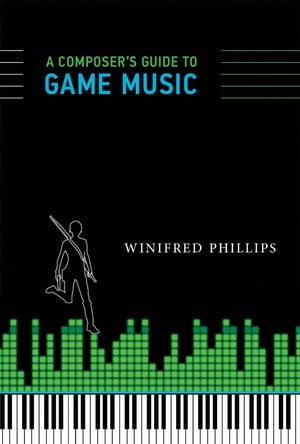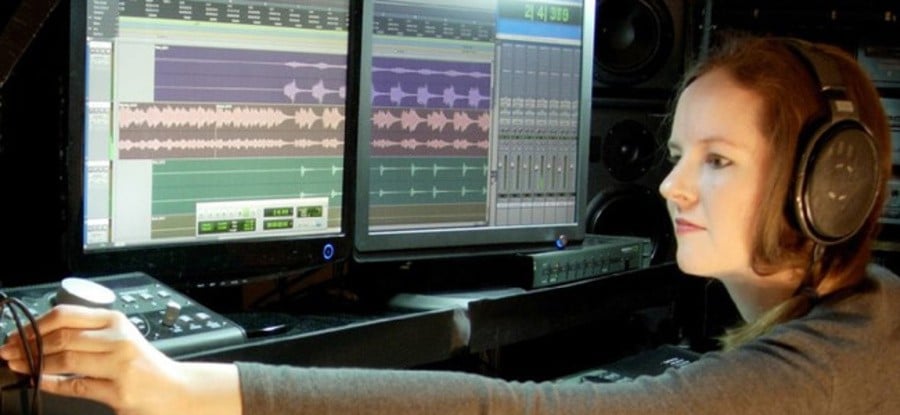
Winifred Phillips is one of the best regarded composers in video games today, having contributed to an eclectic roster of titles, including PlayStation favourites such as Assassin’s Creed III: Liberation, God of War, and the LittleBigPlanet series. With such vast experience in the medium, the musician has put together a book named A Composer’s Guide to Game Music, which serves as an introduction to the industry for existing audio aficionados – and aspiring ones, too.
Right off the bat, the book begins by outlining traits that would best serve those looking to get into game composition, stressing – perhaps a little obviously – that having a passion for the medium and a desire to be on the cutting of a rapidly expanding creative frontier will serve your efforts in the industry well. It’s a strong ‘dip your toes in’ introduction that lays out the tone and concept of the book well, and helps to ease you into the more challenging topics that are to follow.
As the title and concept should probably indicate, this book is not necessarily for everyone. While the book is never needlessly complex, it’s definitely targeted at those with a musical background. The later chapters in particular touch on styles of music and technical skill sets, which require a certain degree of understanding. Fortunately, Phillips is considerate enough to offer explanations for many of the technical concepts that are scattered throughout these sections, which is appreciated. These descriptions are especially appreciated when the book tackles topics that are largely unique to games.
The book doesn’t only cover the technical aspects of game music composition, however. Phillips also offers guidance when it comes to the business practices regarding the medium, as well as the role of the composer on a development team – including the differences between working externally or internally at a studio. And, while these tips will be useful to those who already have an understanding of how to produce great software accompaniments, the musician also offers tips for relative rookies, explaining clearly how a soundtrack can be used to complement an experience, as well as immerse a player.

The real beauty of the book is that you can tell that its author is a gamer; there’s a risk of books like this reading like they’ve been written by a robot, but instead the writing is genuine and sincere. Phillips makes it clear from the off that she is passionate about the industry, sharing personal memories about some of her experiences with classic titles – and how they ultimately shaped her career. Such vigour and passion makes for an enjoyable read, and that ensures that the more technical content sinks in all the easier.
This is an inclusive guide that touches upon all of the elements and attributes required to carve a successful career out of composing for games. Between the real life experiences and the step-by-step walkthroughs of how certain things work, this is essential material for budding musicians looking for their first big break – or perhaps veterans looking for fresh inspiration. And while it’s perhaps not the easiest read for those not heavily invested in the subject, the book is considerately written, and is never haughty in its delivery. As such, those engaged in the art of game music shouldn’t think twice about picking this up.
A Composer's Guide to Game Music is available now in both hardback and Kindle format from Amazon. You can read our interview with the author through here.
Please note that some external links on this page are affiliate links, which means if you click them and make a purchase we may receive a small percentage of the sale. Please read our FTC Disclosure for more information.

Comments 1
I have just finished my first year at uni studying music production, picked interactive audio for my next module as making music for games is my main goal so this book is most welcome. Thanks for bringing it to my attention.
Show Comments
Leave A Comment
Hold on there, you need to login to post a comment...